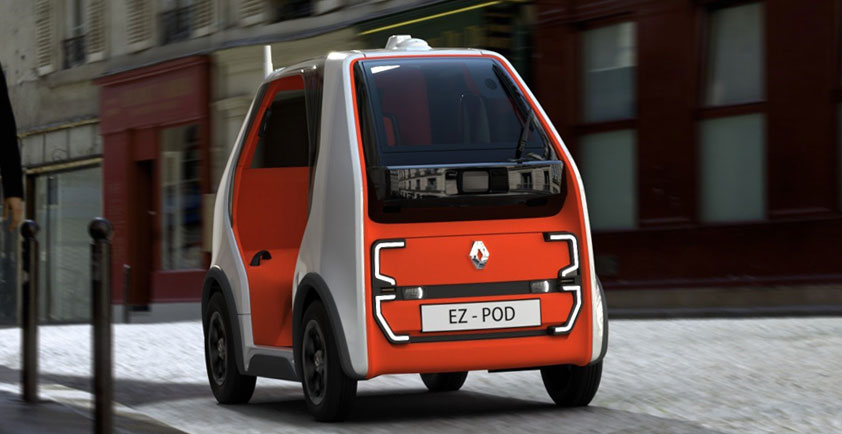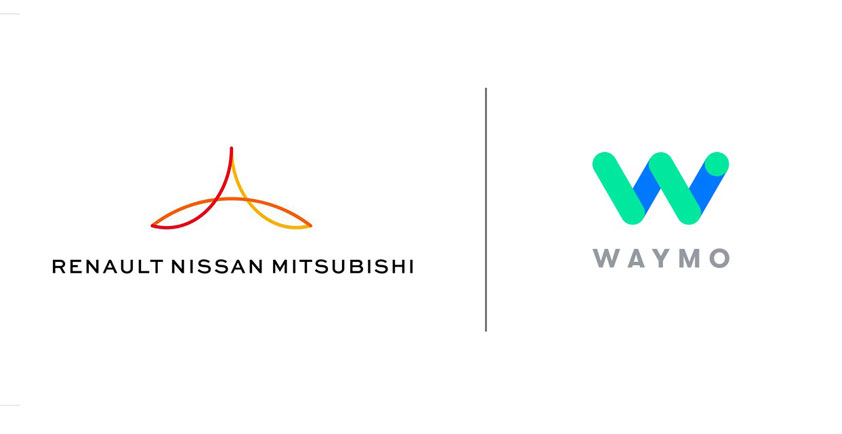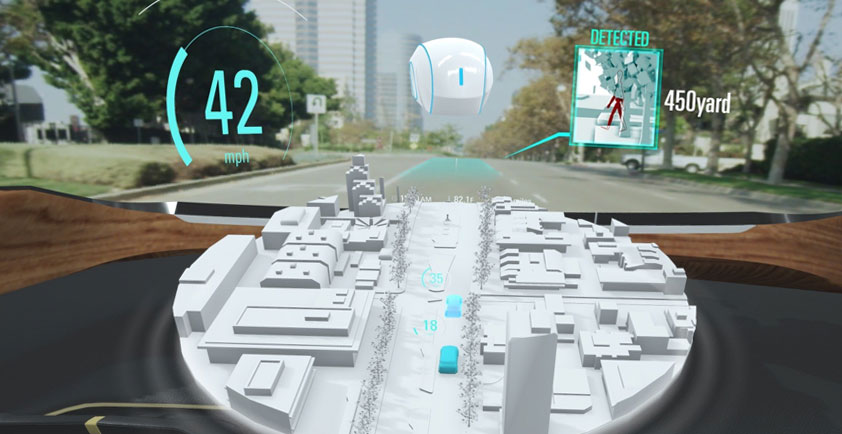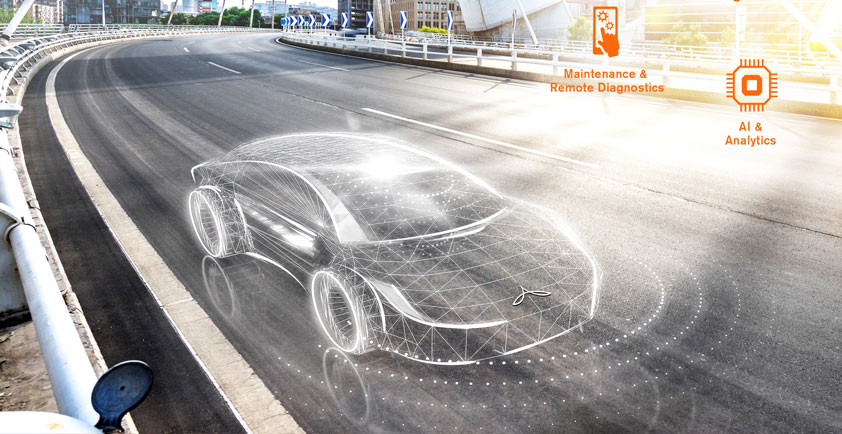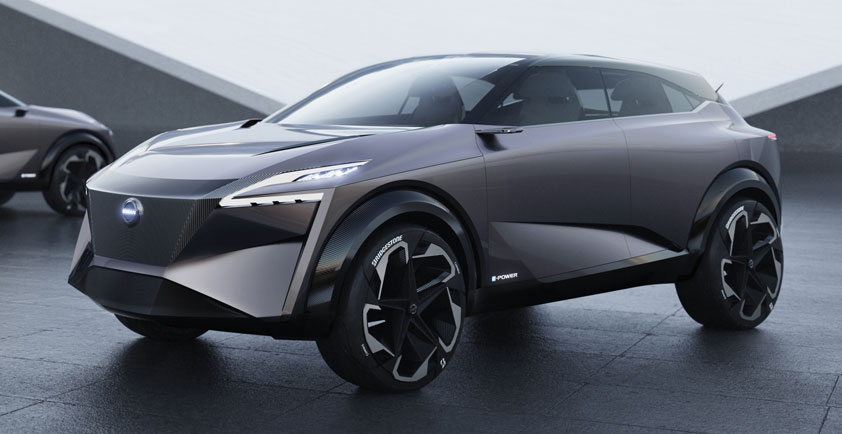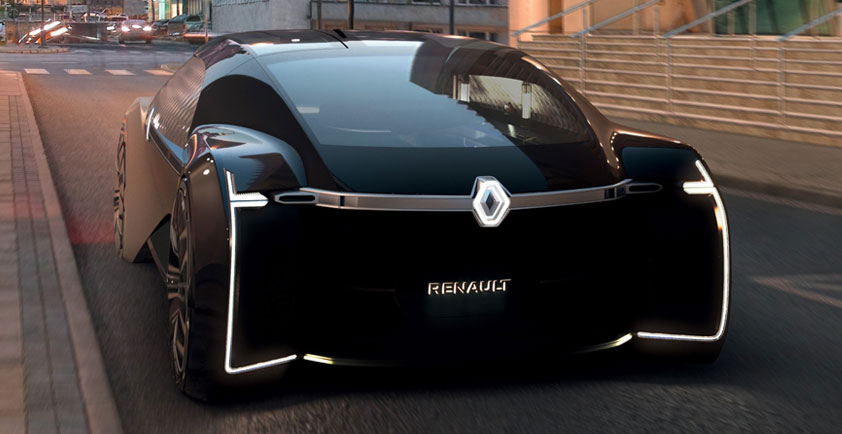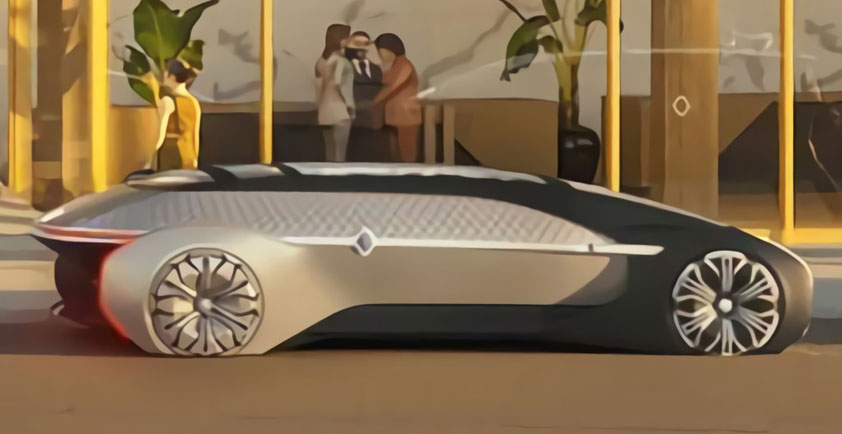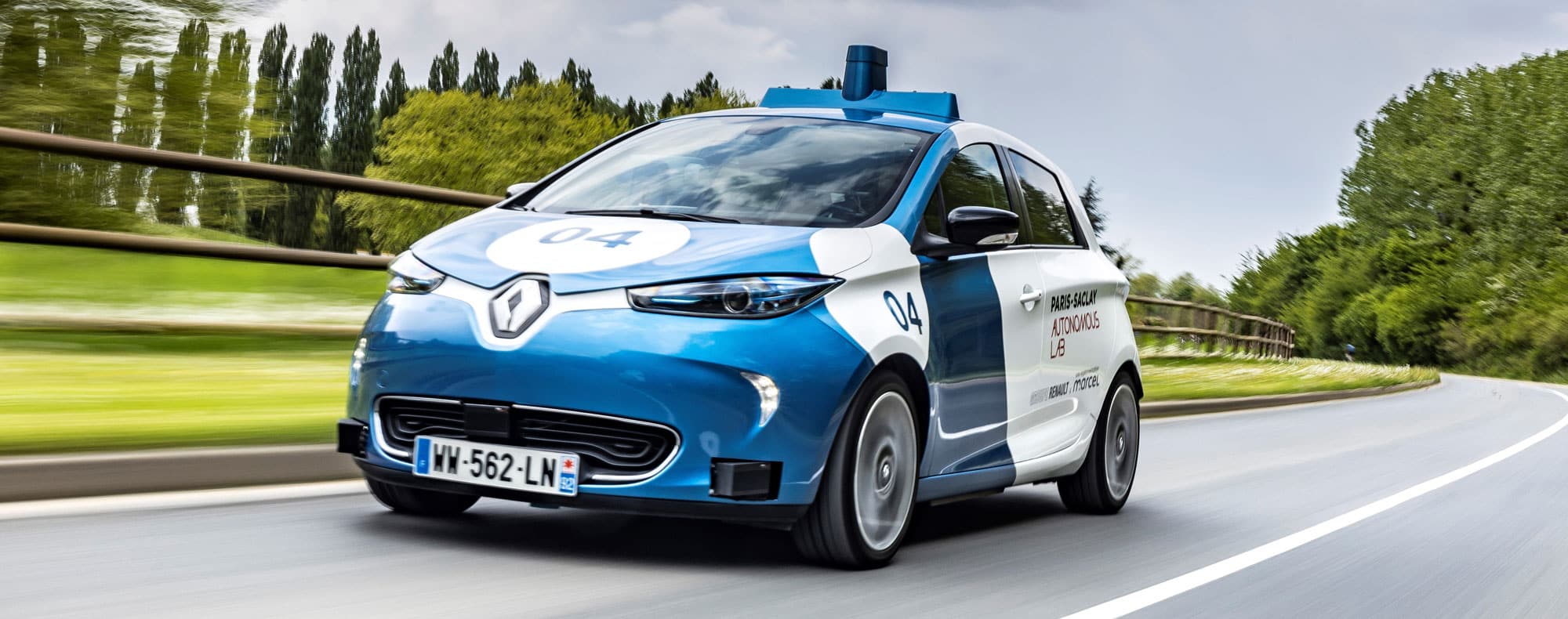
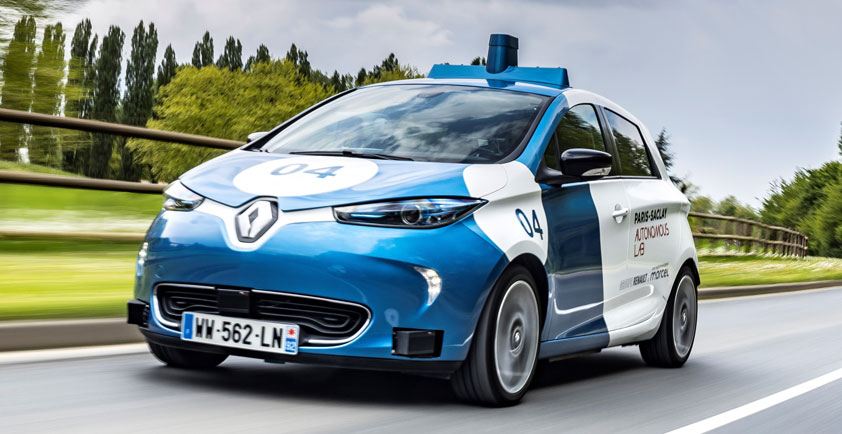
PARIS-SACLAY AUTONOMOUS LAB: NEW AUTONOMOUS, ELECTRIC AND SHARED MOBILITY SERVICES
>> The purpose of the Paris-Saclay Autonomous Lab project is to devise and test different smart, autonomous, electric and shared public and private mobility services to supplement the existing transportation systems in the Paris-Saclay area.
>> A comprehensive autonomous transportation system comprising autonomous vehicles, a supervision system, connected infrastructure and customer applications will be set up and experiments will be conducted to determine the requirements for scaling up an autonomous mobility service.
>> The experimental system using autonomous electric vehicles – three Renault ZOE Cab prototype cars and a Transdev-Lohr i-Cristal shuttle – will be progressively made available to a panel of users.
>> Groupe Renault, the Transdev Group, IRT SystemX, VEDECOM and the University of Paris-Saclay initiated the Paris-Saclay Autonomous Lab project. It was launched under the acronym EVAPS with support from the French government's Investments for the Future program (PIA) entrusted to ADEME; the Établissement Public d’Aménagement Paris-Saclay; the Paris-Saclay urban community; the Essonne Department; and Ile-de-France Mobilités.
Paris – The Paris-Saclay Autonomous Lab project was initiated by Groupe Renault, the Transdev Group, IRT SystemX, Institut VEDECOM and the University of Paris-Saclay. Its purpose is to develop new autonomous (i.e. driverless) mobility services using dedicated lane and public and campus streets to supplement the existing Saclay Plateau transportation systems.
This first stage of the Paris-Saclay Autonomous Lab project is one of the SAM experiments selected by the French government on April 24, 2019 following the EVRA call for projects under the Investments for the Future (PIA) program. The SAM experiments are part of France's national autonomous vehicle development strategy. They are designed to familiarize local citizens and stakeholders with these systems, expand their use and build a regulatory framework that notably includes the safety approval process.
Testing autonomous mobility services designed to supplement existing transportation systems
The Paris-Saclay Autonomous Lab project provides for:
> A night collective transportation service using an autonomous Transdev-Lohr i-Cristal shuttle will serve the Saclay Plateau neighborhoods from the Massy station. The service will be provided outside the normal operating hours of the regular transportation systems and will use the existing dedicated bus lane.
> A daytime on-demand car service using autonomous Renault ZOE Cab prototype vehicles will be provided on the Paris-Saclay urban campus. People travelling to the campus by public transportation can then use it to freely move around the site.
Understanding the requirements for scaling up autonomous mobility services
The Paris-Saclay experiments are designed to identify the requirements for rolling out an autonomous mobility service on a broader scale.
The project will focus on two main issues: technology, with an autonomous transportation system comprising two types of supplementary service; and acceptability, with user panels to study ridership.
Paris-Saclay Autonomous Lab incorporates advanced technologies in the smart vehicle systems, supervision system, connected infrastructure and secure telecommunications networks.
Paris-Saclay Autonomous Lab services will gradually introduce user panels to record user views and expectations (service quality, mobile app usability, in-vehicle comfort, etc.).
The remarkable project is located in the Paris-Saclay area, which lends itself to innovation, and involves complementary project participants committed to developing shared autonomous mobility.
Rolling-out a comprehensive autonomous transportation system
Paris-Saclay Autonomous Lab is a comprehensive autonomous transport system comprising autonomous electric vehicles, an operating control center to supervise the services, connected infrastructure and customer apps.
> Smart autonomous vehicles
The all-electric autonomous Renault ZOE Cab prototypes and Transdev-Lohr i-Cristal shuttle perform the full range of safety-critical driving functions such as detection of other vehicles and pedestrians, intersection and roundabout management, deceleration and traffic light recognition. They are equipped with GPS-type sensors, Lidar, cameras, inertial units and self-driving software. They provide full autonomy in specified areas.
Interior cameras and screens are provided for passengers throughout the trip.cThe experiment is conducted with a “safety operator” on-board the vehicle.
> Intuitive, user-friendly customer apps
The Mobibot by Transdev smartphone app enables the user to track the Transdev-Lohr
i-Cristal shuttle trip in real time. It displays the shuttle’s arrival time at the user's stop, route simulation and time to destination including any distance to be covered on foot.
A Marcel smartphone app specific to the Renault ZOE Cab experiment can be used to book an on-demand autonomous vehicle for immediate or later use. The app directs the user from his or her current location to the nearest pick-up point and indicates the vehicle's arrival time. Within the vehicle, the app can be used to track the trip and time of arrival at the drop-off point.
> Connected urban infrastructure
Paris-Saclay Autonomous Lab vehicles are designed to merge with normal traffic flow and reach compatible speeds while ensuring a high degree of safety in two-way public streets and dedicated bus lanes. To achieve this, the project partners decided to roll out and test connected infrastructure consisting of connected traffic lights, sensors and roadside connectivity equipment (primarily thermal cameras and lidar devices located at 25 strategic points). The infrastructure provides vehicles and the supervision system with augmented vision to handle unforeseen events. The communicating traffic lights enable the vehicle to adapt its approach speed to traffic light status. To boost pedestrian and cyclist safety, the experiment will envisage to test the use of connected objects such as smartphones and wearables to be taken into account by the vehicle or send alerts to the equipped user.
> Supervision from an Operating Control Center
Supervision from an Operating Control Center located at the Massy station will track operation of the services in real time. The supervisor will display all vehicles in operation, check their status and the status of system components and use the connected infrastructure to anticipate any obstacles along the route and take appropriate action as required. The supervisor can be in direct contact with passengers and interact with them.
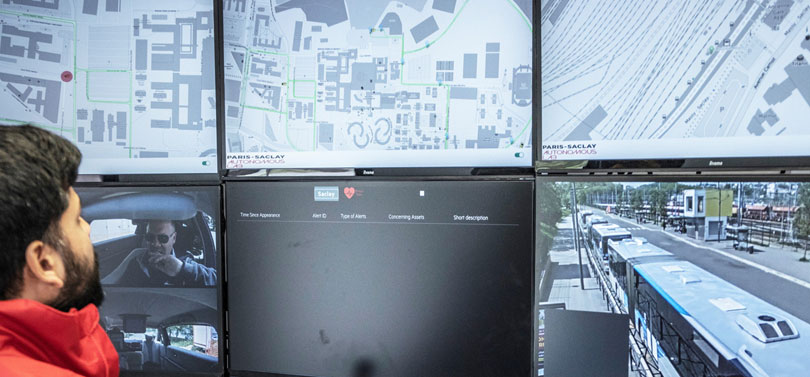
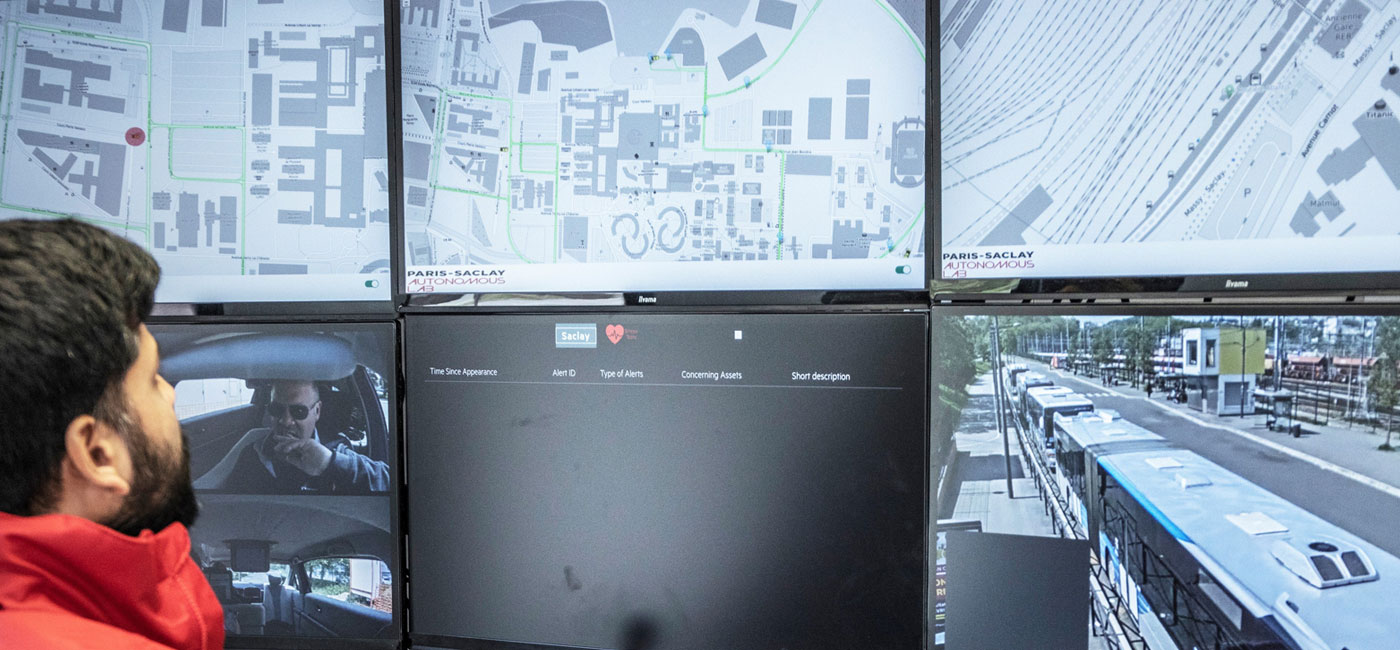
Developing an integrated approach within the smart city ecosystem to build tomorrow’s mobility
The Saclay Plateau mobility system will help enhance the area's international image. Demand will grow, with the number of Saclay Plateau users and residents expected to exceed 50,000 in 2022 (versus 25,000 in 2016) and some 80,000 in the 2029 timeframe. The number of students is expected to reach 20,000 in 2022 and about 25,000 in 2029.
To address these issues in the near future, the public authorities decided, among other initiatives, to expand the use of new types of mobility (shared shuttles, on-demand vehicles, etc.) as part of the public transportation systems.
The Paris-Saclay Autonomous Lab project is an integral part of this approach. It is designed to demonstrate the suitability of autonomous mobility solutions as part of an existing transportation network, in terms of their performance, complementarity with existing systems and economic viability.
A public-private initiative for public and private services
For Groupe Renault, the Paris-Saclay Autonomous Lab project is a further step in developing Marcel-type on-demand electric, shared and eventually autonomous vehicle solutions. On this project, the group serves as the operator, building on its expertise as an automotive manufacturer and leading producer of electric vehicles; its autonomous and connected technology capabilities; and its experience with mobility services via Marcel and Yuso.
Marcel offers a ride-hailing service in the Greater Paris area that gives priority to CSR (corporate social responsibility) and fair and sustainable mobility. Yuso (Flit Technologies Group) is developing a dispatch technology for on-demand transportation (ride hailing, taxis, last-kilometer delivery, on-demand public transportation and autonomous shuttles).
Yuso developed the Marcel solution for this experiment. It includes the user app, safety operator app, and the dispatch and pooling algorithm that enables two customers to share the trip.
The project is an integral part of Groupe Renault’s “Drive The Future” strategy aimed at offering autonomous mobility services as early as 2022.
